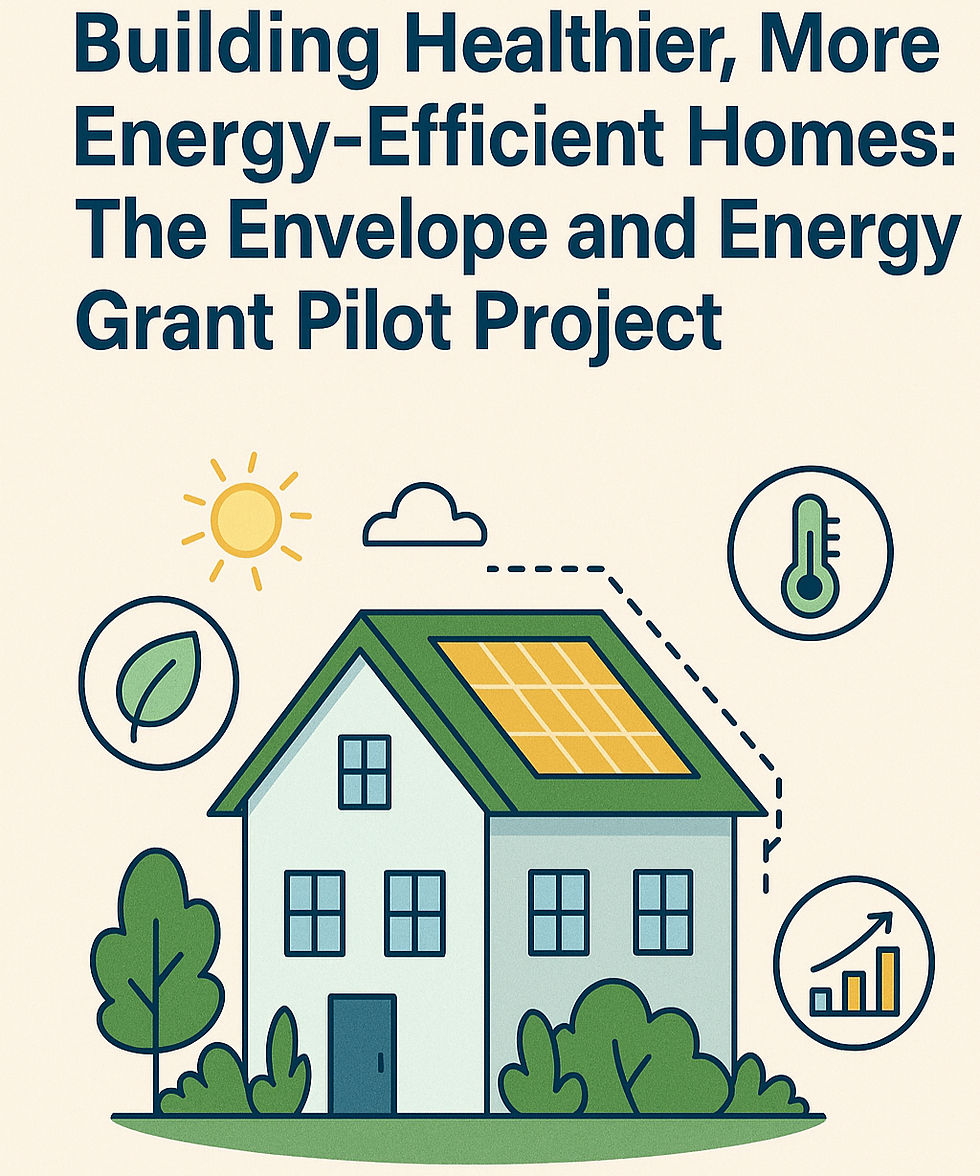Federal Funding Cutbacks Create an Unknown Future for Clean Energy Initiatives
- localenergy
- May 1, 2025
- 3 min read

The federal government’s recent rollback of clean energy funding has significantly impacted initiatives across the United States, including many notable impacts in Minnesota. These changes may soon cause a trickle-down effect into Cook County and affect funding sources for the Cook County Local Energy Project (CCLEP) and other key programs and initiatives that CCLEP utilizes. These include programs funded under the 2022 Inflation Reduction Act (IRA) and the Bipartisan Infrastructure Law.
Federal Funding Reversals and Their Impact
In March 2025, the Environmental Protection Agency (EPA) cut $20 billion from the Greenhouse Gas Reduction Fund, citing concerns over potential fraud and misalignment with agency priorities. This action halted funding to various projects to reduce greenhouse gas emissions and promote environmental equity.
Additionally, the administration paused over $300 billion in green infrastructure funding, including nearly $50 billion in Department of Energy loans. This move disrupted projects nationwide, causing market uncertainties and companies to reassess their current investments in renewable energy.
In January, the administration cut $550 billion of funding for new infrastructure investments that came from the 2021 Infrastructure Investment and Jobs Act (IIJA) and $30 billion from the IRA. On April 15, a federal judge reviewed a case brought forward by seven non-profit organizations stating the funding freeze was “arbitrary and capricious”. The judge sided with the non-profits and issued a nationwide preliminary injunction, releasing billions of dollars in funding.
However, many organizations report that the funding freeze has already caused significant harm, and while funding may be in place now, the future of the continuation of funds from outside the Biden-era initiatives remains uncertain. The IIJA was already scheduled to end in 2026, leaving many non-profits and initiatives scrambling to find future funding sources.
Minnesota's Direct Impact
Minnesota was directly affected when the EPA temporarily froze access to a grant intended for community-based climate projects. Many of these projects aimed to provide energy equity to lower-income households in Minnesota. Although the EPA later restored access to these funds, the initial disruption caused significant budgeting and planning challenges for small organizations and created a feeling of uncertainty for the future.
Cook County Local Energy Project's Uncertain Future
While specific details regarding how the Cook County Local Energy Project (CCLEP) will be affected are limited, the broader funding reversals and reductions have already impacted community-based initiatives. As a community-based initiative in Minnesota, CCLEP partners with several organizations that rely on federal grants and programs now affected by the administration's policy shifts. The uncertainty surrounding federal support poses challenges for CCLEP's ongoing and future projects.
However, CCLEP is committed to continuing through the current funding uncertainties. The Board of Directors has started to explore the best way to support the community through these ever-changing times. CCLEP continues to promote the increased use of renewable energy and the application of energy-efficient practices and technologies in Cook County, Minnesota. We are dedicated to facilitating an equitable and sustainable transition toward locally controlled, resilient, low-carbon energy products in Cook County.
Continue checking in on CCLEP on our website and monthly interviews with WTIP Community Radio to learn more.
Conclusion
The federal government administration's changes to clean energy funding have introduced significant uncertainties for Minnesota's environmental initiatives. State agencies, local projects, and community organizations like CCLEP face challenges in navigating the evolving landscape of federal support. Through all of this, CCLEP maintains its dedication to the local community.




Comments